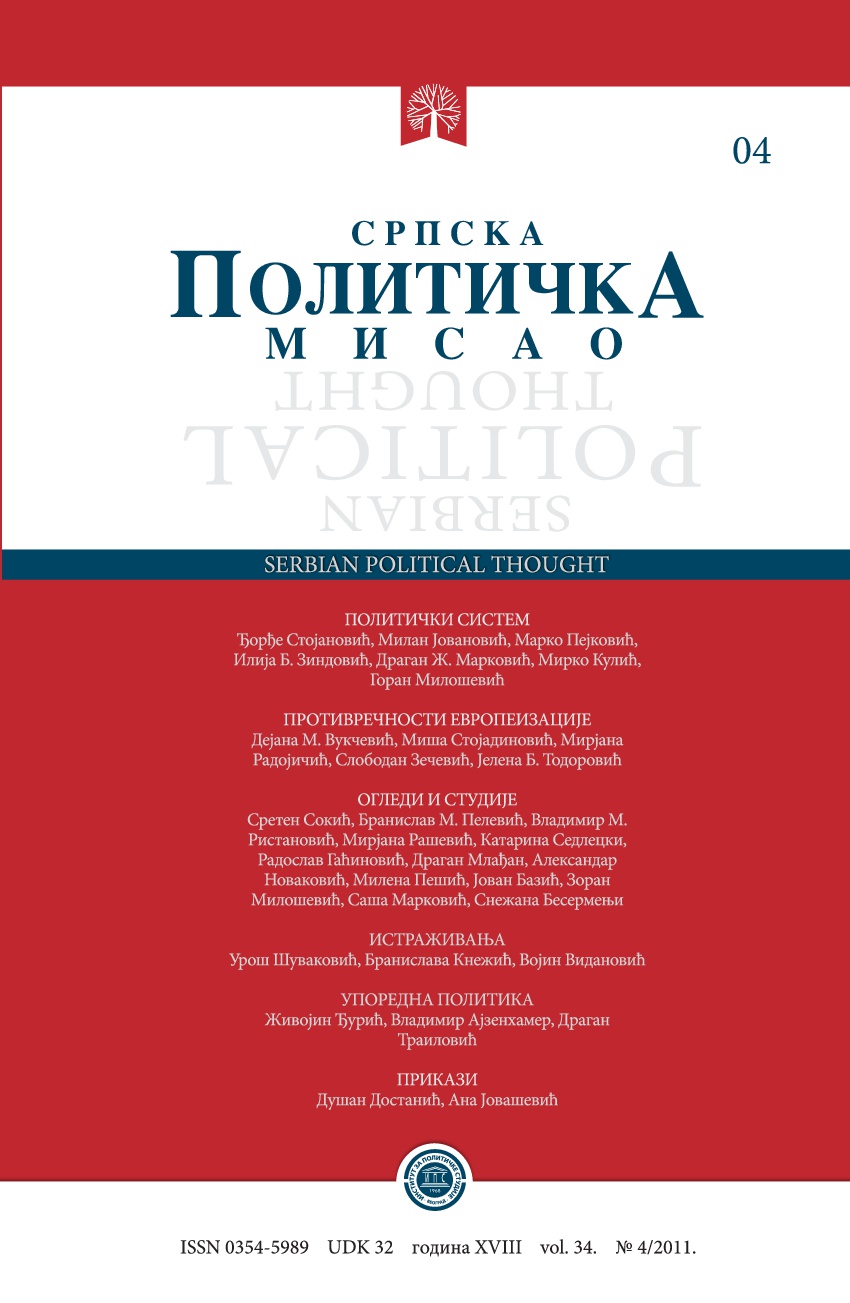Религија и национални идентитет - од прозелитизма до модерних социјалних технологијa
Religion and National Identity - From Proselytism to Modern Social Technologies
Author(s): Zoran MiloševićSubject(s): Christian Theology and Religion, Jewish studies, Recent History (1900 till today), Politics and religion, EU-Approach / EU-Accession / EU-Development, Politics and Identity, Identity of Collectives
Published by: Институт за политичке студије
Keywords: identity; nation; politics; proselytism; religion; church; social technologies; science;
Summary/Abstract: Policy of changing national identity is noticeable even in the Old Testament. This was accomplished when pagans accepted Jewish faith, and after that became a part of Jewish people. This politic is continued in Roman-Catholic church by practicing proselytism in two ways: first, turning into Roman Catholicism, in that context especially the Orthodox, who were denationalized and then included into an existing nations, or in a newly invented nation (Croats, Ukrainians...) and, secondly, through the Union, where there was a possibility of preserving the Byzantine (Orthodox) rites, but later the Uniats were also denationalized and out of them new nations were created or, as it happened more often, they were lost in some of the existing nations whose religion was Roman Catholicism. Main characteristic of both of these processes is that the most of the converts became ardent haters of religion and nation from which they originated. This policy of the Roman Catholic Church in Europe was particularly emphasized until the 1918. more precisely until the end of the existence of the Austro-Hungarian Empire and the Kingdom of Poland, and then the Vatican became its main protagonist - which is especially evident during the Second World War in the so-called. Independent State of Croatia as well as in the Soviet Union. New policy in the creation artificial nations in Europe still insists on a religious alienation of the nations who are not pleasing the U.S. and the European Union, all “for the European perspective”, but this is not the exclusive task. On the religious level, novelty is creation of a multitude of sects that attack certain people and change their basic social values and understanding of the world. When it fails, there are also modern social technologies that build a new ideology, usually through the media (in which now electronic social networks must be included), by party and state policies, economic pressures, and so on.
Journal: Српска политичка мисао
- Issue Year: 2011
- Issue No: 4
- Page Range: 355-375
- Page Count: 21
- Language: Serbian

